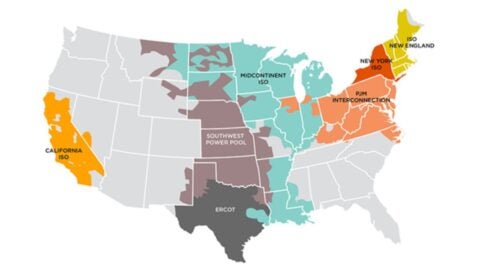86 Questions and Counting for Scott Pruitt
Spring has been EPA Administrator Scott Pruitt’s season of scandal, with each day bringing fresh allegations of the EPA Administrator’s reckless disregard for his boss’s promises to “drain the swamp.”
Worse for the country, he has adopted a sense of entitlement, which appears to have long pre-dated his arrival in Washington. In so doing, he has broken laws, flouted ethics rules, ignored congressional intent and requests, and sought the trappings of power and prestige.
A maelstrom of scandals throughout the first year of Pruitt’s tenure surfaced questions regarding his first-class flights, a sweetheart condo deal from the wife of an energy lobbyist, unauthorized pay raises for close associates, his penchant for secrecy and love of perks, and the demotion of EPA employees who questioned his spending.
Since then, another flood of stories has generated even more questions: An EPA inspector general report showing that Pruitt didn’t tell the truth when he said he knew nothing in advance about the raises. A string of allegations by former deputy chief of staff Kevin Chmielewski. An OMB investigation of his $43,000 phone booth (which the GAO says was illegally paid for, and which, in any case, was unneeded). A meeting with a lobbyist who co-owned the condo he rented. Questionable insider dealings during Pruitt’s days in Oklahoma.
It is regrettable that each new story brings little surprise at how naturally Pruitt navigates and takes advantage of the swamp. But he has proven himself to be a man who shamelessly advances his own political ambitions and the desires of polluters at the expense of Americans who must watch a public official thumb his nose at ethical behavior while pursuing an agenda that makes our air, water, and land dirtier, and climate change worse.
In all, we now count at least 86 questions that need answering, with more seeming to emerge every day. As Pruitt prepares to face two Congressional committees Thursday, lawmakers are noticing the scandals unfolding before them.
“If the allegations are true,” notes Rep. Bill Flores (R-TX), “they are troubling, and we should expect higher of any person in public office.”
Representative Flores is right—we should expect better. We should also expect that an individual tasked to lead EPA will prioritize the well-being of families and the environment over the wishes of close friends and industry. Pruitt fails on both accounts.
Two hearings may not be enough to cover all the questions. But here are ten of the biggest questions to which Americans deserve answers:
- Why did Mr. Pruitt tell Fox News he had no prior knowledge of raises given to two staffers he brought from Oklahoma when an EPA Inspector General report now shows that Pruitt signed off on them?
- Did Pruitt sometimes pick travel destinations based on his personal desires, and ask his staff to “find me something to do” to justify the use of taxpayer funds, as a former EPA staffer alleges? How many taxpayer-funded trips home to Oklahoma or elsewhere were justified on the basis of a single hurriedly scheduled meeting?
- If Pruitt needs to fly first class for security reasons, why did he fly coachon personal trips home to see Oklahoma football games—when he could not concoct a reason for the taxpayers to pay his way?
- Did Pruitt really text his chief of staff to tell him not to come to travel planning meetings after he raised concerns about the Administrator’s travel?
- Why were at least five EPA officials (four of them senior)reassigned or demoted, or asking for new jobs after questioning Pruitt’s spending priorities?
- Will EPA’s new #2 official, former coal and energy lobbyist Andrew Wheeler, be granted any waivers from his ethics pledge or other restrictions on helping former clients?
- Did one of Pruitt’s staffers spend weekshelping Pruitt search for an apartment, contacting agents and touring properties? For what other personal chores did Mr. Pruitt enlist government workers?
- During Pruitt’s December 2017 trip to Morocco to promote natural gas — which is not part of the EPA’s mission — did he discuss Cheniere Energy Inc., which is partly owned by Donald Trump’s friend Carl Icahn? (Icahn helped promote Pruitt for the EPA job.)
- Does Pruitt agree with EPA air chief William Wehrum that the Mercury and Air Toxics Standards, which protect children from serious harm, “may not be necessary?”
- What is the full story behind the lavish home of a lobbyist eventually making its way to a shell company of which Pruitt was a stakeholder? That same lobbyist’s client would receive favorable treatment from Pruitt in the future—were any backroom deals made during the transfer of the property?
As a cabinet-level official, Scott Pruitt is supposed to set an example for public servants. Instead, he has created a growing cloud of questions about his ethics, his honesty and his fitness for public life. On behalf of America’s taxpayers, Congress needs to start asking Scott Pruitt questions — a lot of them.












